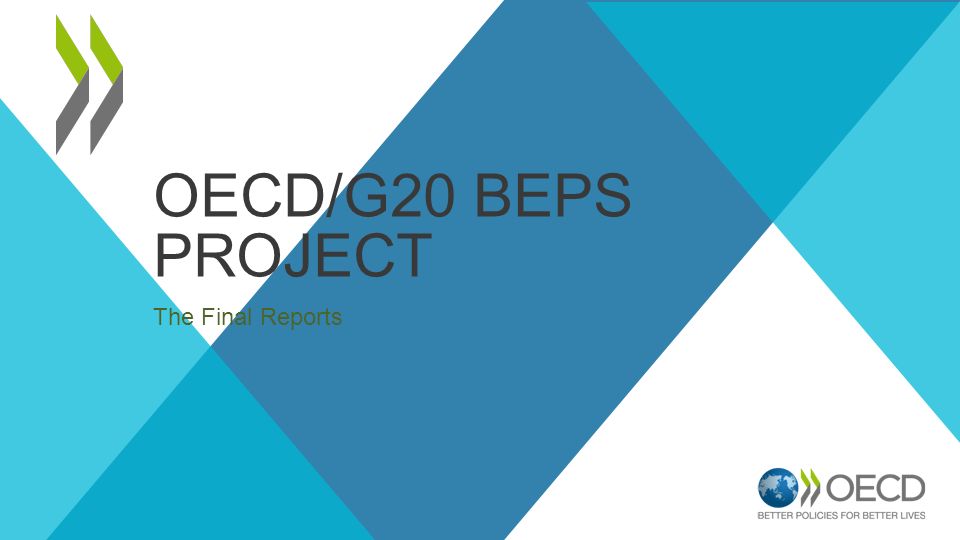The OECD presented on 05/10/2015 the final package of measures for a comprehensive, coherent and coordinated reform of the international tax rules[1] which has been discussed by G20 Finance Ministers at their meeting on October 8th, in Lima, Peru. The OECD/G20 Base Erosion and Profit Shifting (BEPS) Project provides governments with solutions for closing the gaps in existing international rules that allow corporate profits to « disappear » or be artificially shifted to low/no tax environments, where little or no economic activity takes place[2].
Undertaken at the request of the G20 Leaders, the work to address BEPS is based on the 2013 G20/OECD BEPS Action Plan, which identified 15 actions to put an end to international tax avoidance[3]. The plan was structured around three fundamental pillars: introducing coherence in the domestic rules that affect cross-border activities; reinforcing substance requirements in the existing international standards, to ensure alignment of taxation with the location of economic activity and value creation; and improving transparency, as well as certainty for businesses and governments.
The BEPS package offers governments a series of new measures to be implemented through domestic law changes, including strengthened rules on Controlled Foreign Corporations, a common approach to limiting base erosion through interest deductibility and new rules to prevent hybrid mismatch arrangements from making profits disappear for tax purposes through the use of complex financial instruments[4].
[1]http://www.oecd.org/ctp/beps-reports-2015-executive-summaries.pdf, visited on 2015, October 19th
[2]http://www.oecd.org/ctp/beps-explanatory-statement-2015.pdf, visited on 2015, October 19th
[3]http://www.oecd.org/tax/beps-2015-final-reports.htm, visited on 2015, October 19th
[4]http://www.oecd.org/ctp/beps-reports-2015-information-brief.pdf, visited on 2015, October 19th.
Latest Company
Renpower Iran 2016
Bei der Iran Infrastructure, Power & Renewable Energy Investment Conference (RENPOWER IRAN 2016), die am 06. und 07. November 2016 in Teheran stattfinden wird, spricht Dr. Norbert Knittlmayer, Rechtsanwalt und…
